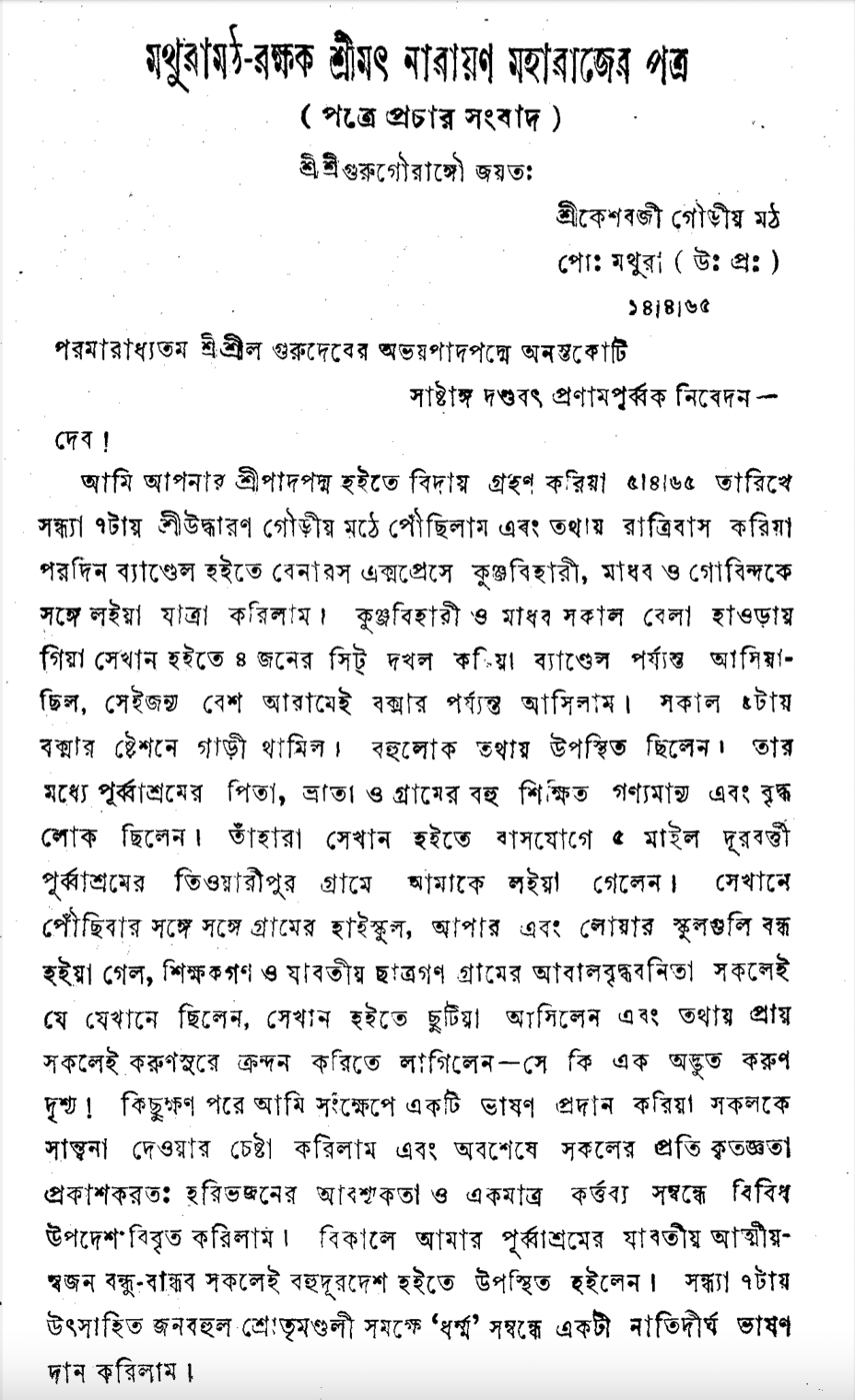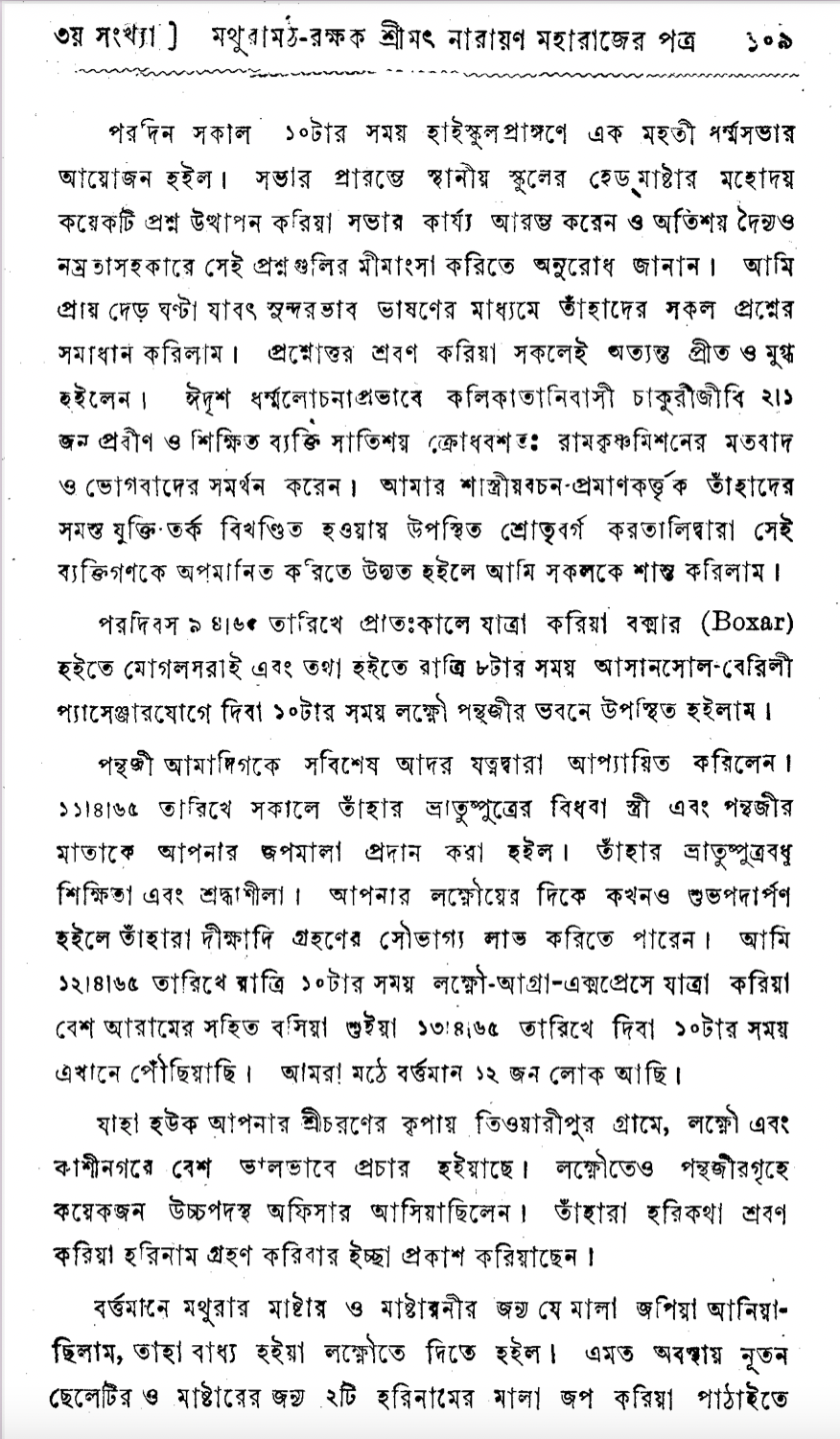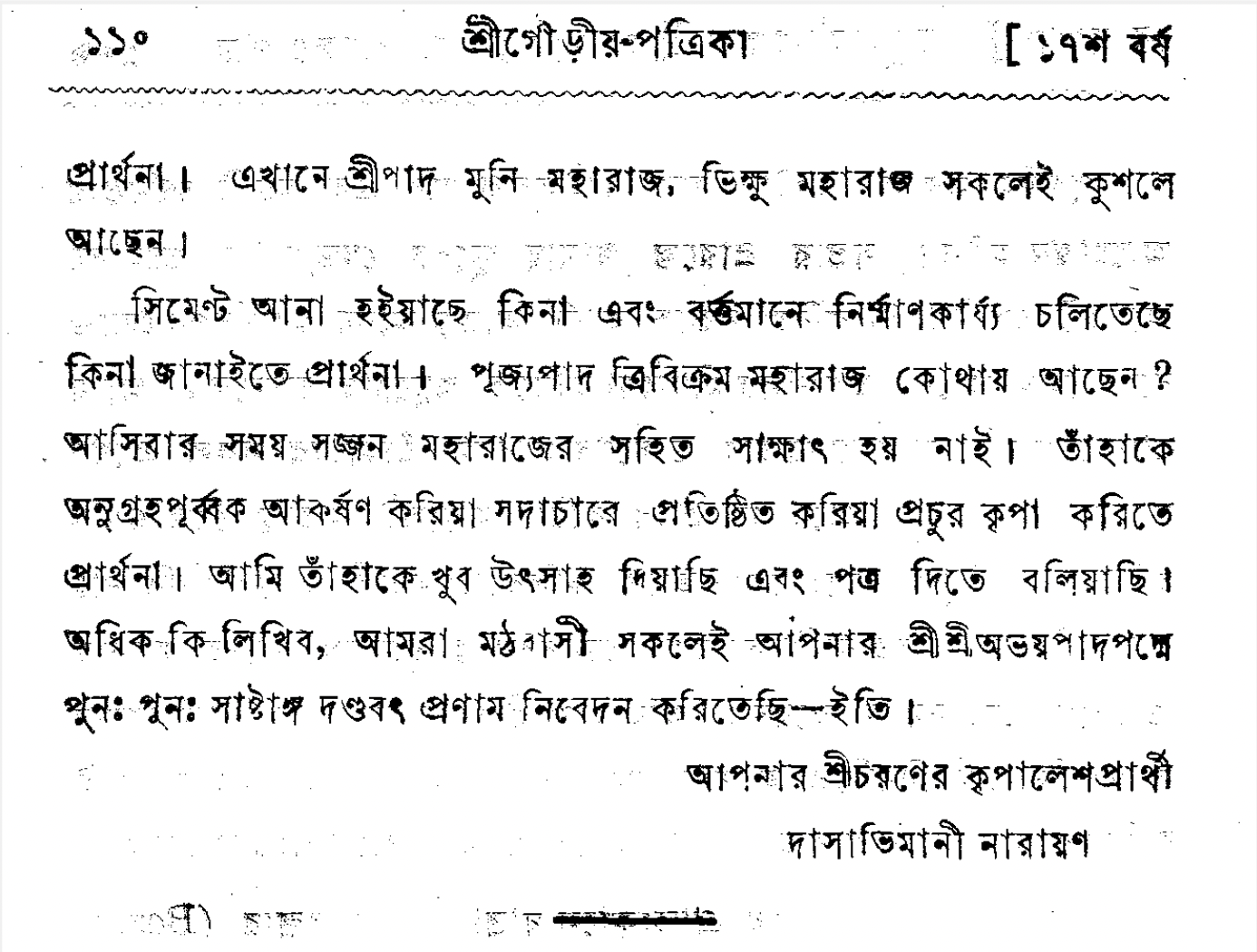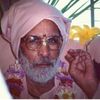A Visit to Buxar
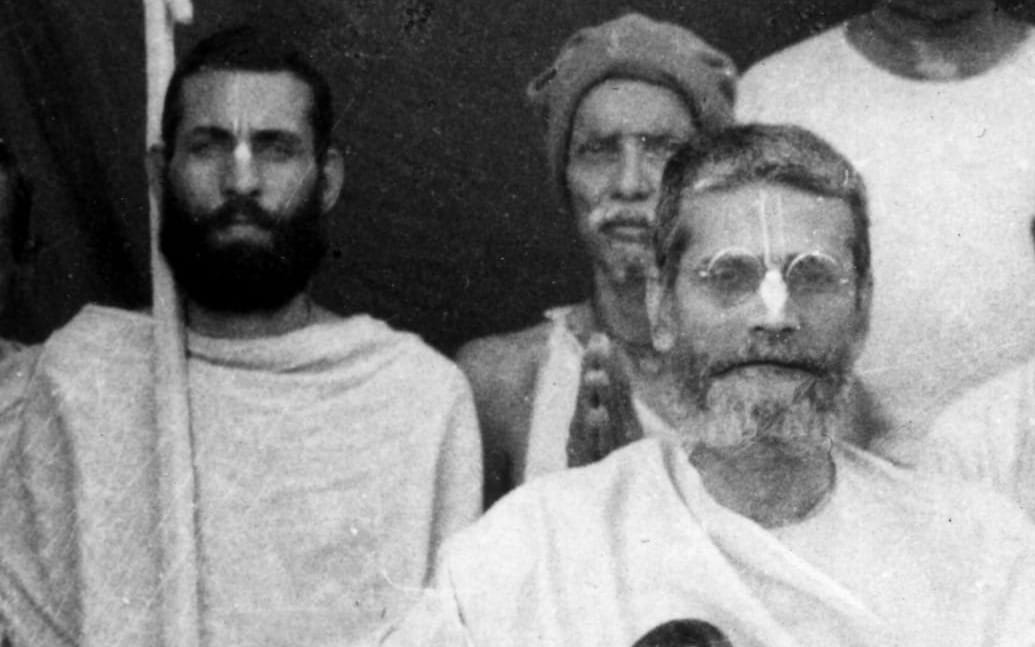
śrī śrī guru-gaurāṅga jayataḥ
Śrī Keśavajī Gauḍīya Maṭha
P.O. Mathurā (U.P.)
14|4|65
paramārādhyatam śrī śrīla gurudevera abhaya-pāda-padme ananta-koṭi sāṣṭāṅga daṇḍavat pranāma-pūrvaka nivedana—
[“Having paid unlimited millions of prostrated obeisances unto thy fearless lotus feet, O most worshipful Śrī Śrīla Gurudeva, I herein supplicate thee—”]
Deva! [“Lord!”]
I bade farewell to your śrī-pādapadma and reached Śrī Uddhāraṇa Gauḍīya Maṭha at seven o’clock in the evening on the date of 5|4|65 and stayed there for the night. The next day, I travelled from Bandel via the Benares Express with Kuñjabihārī, Mādhava, and Govinda. Kuñjabihārī and Mādhava had gone to Howrah in the morning, occupied four seats from there, and came back to Bandel, so our journey to Buxar was very comfortable.
The train arrived at Buxar station at five o’clock in the morning. Many people were waiting there to greet us. Among them were my father from my previous āśrama, my brothers, many educated, well-respected individuals and senior citizens of the village. From there, they took us by bus to my previous āśrama village, Tiwaripur, which is about five miles from there. As soon as we arrived there, the high school, as well as the upper and lower schools, were let out and closed for the day. The teachers and most of the students, along with many young children, elderly persons, and youths all came. Wherever they were, they left what they were doing and came. And almost everyone there began crying in audible, piteous tones. What a heart-wrenching scene it was! After some time, I gave a speech and tried to console everyone. And at the end, I expressed my gratitude to them and outlined various teachings regarding the necessity for hari-bhajana and how it is an exclusive duty for all. In the evening, all my relatives and friends from my previous āśrama arrived from various distant locales. At dusk, around seven o’clock, I gave a brief speech before the enthusiastic crowd of listeners on the topic of dharma.
The next day, at ten in the morning, a formal religious assembly was held in the courtyard of the high school. At the start of the assembly, the local school’s headmaster sir raised a number of questions to begin the function of the assembly and, with abject humility and gentleness, conveyed his request to resolve those queries. I spent almost one and a half hours answering all his questions in full via a formal speech. Everyone was very pleased and enchanted hearing this question-and-answer exchange. Because of the impact this religious discussion was having, a few older, educated, employed Calcutta gentlemen became extremely enraged and began spouting the philosophy of the Ramakrishna Mission and that of bhogavāda (materialism). When all their reasoning and arguments were shattered by the evidence I gave from the statements of scripture, the audience was about to insult those individuals with a round of loud applause, but I calmed them all.
The next day, on the date of 9|4|65, in the morning, we travelled from Buxar to Mughalsarai, and from there, at eight o’clock at night, caught the Asansol–Bareilly passenger train and arrived at the home of Lucknow Panthajī.
Panthajī welcomed us with special honor and graciousness. On the date of 11|4|65, in the morning, your japa-mālās were granted to his nephew’s widowed wife and Panthajī’s mother. His nephew’s widow is educated and has śraddhā. If your holiness should ever set foot in the direction of Lucknow, they can gain the fortune of receiving dīkṣā etc. On the date of 12|4|65, around ten o’clock at night, I travelled by the Lucknow–Agra Express very comfortably, sitting and sleeping, and arrived here at around ten o’clock in the morning on the date of 13|4|65. There are at present twelve of us here.
By the grace of your sacred feet, the preaching went very well in Tiwaripur village, Lucknow, and the city of Kāśī. In Lucknow, several high-ranking officers also came to Panthajī’s house. They heard hari-kathā and expressed a desire to accept harināma.
The mālās you had chanted on and I had brought for the master and “masterānī” here in Mathurā, I was compelled to give to the people in Lucknow, so I am praying that you chant on two new harināma-mālās and send them for the new boy and for the master. Here Śrīpāda Muni Mahārāja, Bhikṣu Mahārāja, and all are well.
I pray you let me know whether the cement has been brought or not and the construction is ongoing at present or not. Where is Pūjyapāda Trivikrama Mahārāja? On my way, I did not see Sajjana Mahārāja. I pray you kindly attract him and do him the profuse mercy of establishing him in proper conduct (sadācāra). I have encouraged him a lot and told him to write a letter. What more shall I write? All of us maṭha residents are conveying our fully prostrated daṇḍavat-praṇāma again and again at your worshipful lotus feet which are the abodes of fearlessness. iti [“thus I conclude”].
āpanāra śrī-caraṇera kṛpā-leśa prārthī
[“praying for a particle of mercy at your worshipful feet”]
dāsābhimānī nārāyaṇa
[“Nārāyaṇa, who arrogantly considers himself your servant”]
